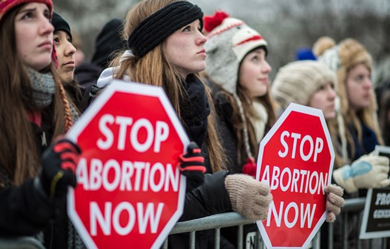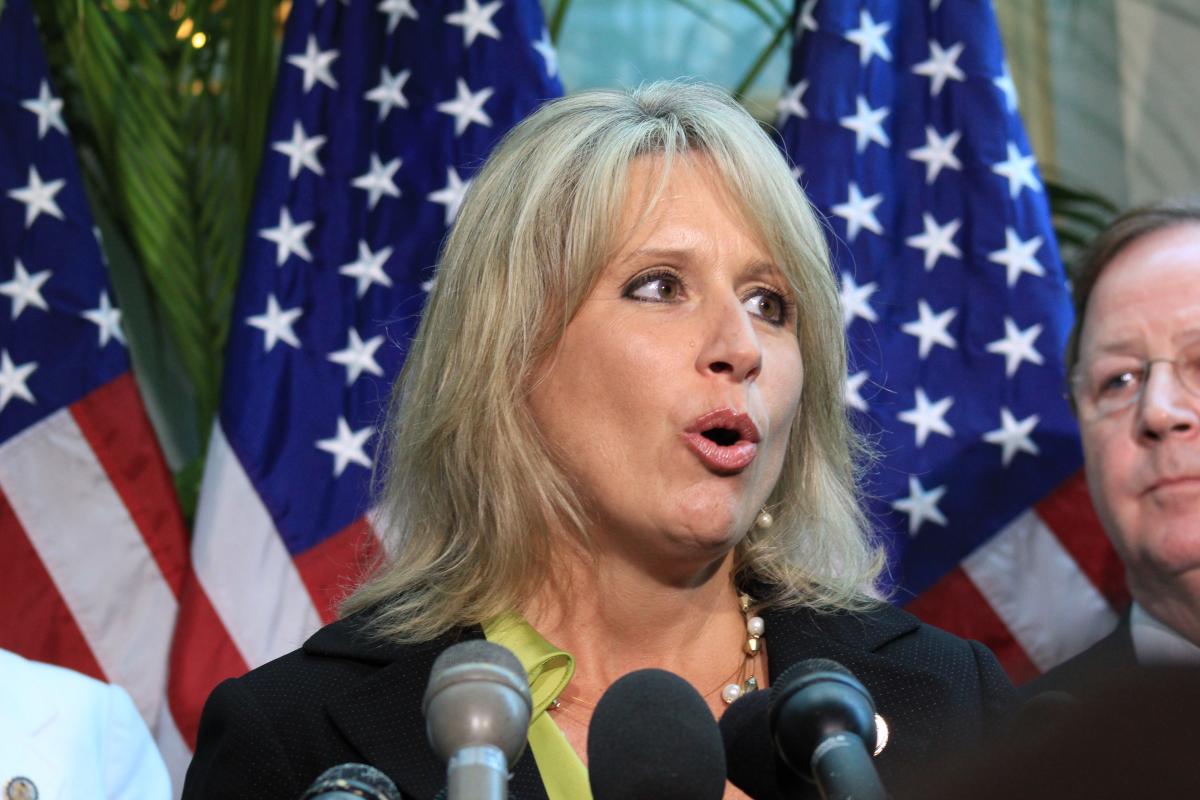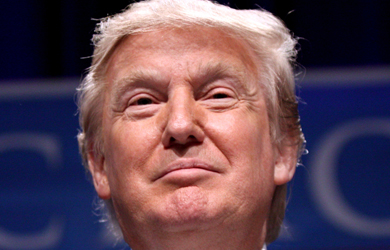At last weekend’s National Right to Life Convention outside of Washington, D.C., there was one name that was on everyone’s minds, even if it was rarely uttered aloud: Donald Trump.
Speaker after speaker discussed the 2016 election while sidestepping what one conference-goer called the “elephant in the room,” Trump’s place at the top of the Republican ticket. But attendees were not about to let the topic go, and several speakers were pressed about the organization’s stance on the presidential election during question-and-answer sessions.
While a handful of National Right to Life state affiliates have endorsed Trump, the national group has yet to take an official position in the general election. The group endorsed Sen. Ted Cruz in the waning days of the Republican primary, citing Trump’s many flip-flops on abortion rights.
James Bopp, the legendary conservative attorney who serves as the National Right to Life Committee’s general counsel, was one of the few speakers to bring up the presumptive GOP nominee without prompting, never mentioning the candidate by name but saying that “there’s only one conclusion you can come to” in the race since the Democratic candidate, Hillary Clinton, is “100 percent evil” and “will never make a correct decision on anything.”
Fr. Frank Pavone, the head of Priests for Life, made a similar argument after being pressed about his position on Trump at the conference, attempting to downplay the power that Trump would have and play up the influence that he would give to those around him, presumably people more in line with the anti-choice movement’s goals and messaging.
“When you think about it,” Pavone said, “the situation we have now is just a heightened version of what we face in any electoral choice, namely you’re choosing between two people, you know, you can have problems with both of them. A vote doesn’t mean that you agree with the person, a vote doesn’t mean that you think the person’s right. A vote is a transfer of power.”
“Remember that the presidency is more than the man or woman who occupies the Oval Office,” he added. “You’re putting a whole party into power. You’re putting a whole team into power. Every one of these candidates is surrounded by a large number of smart and influential people who are going to set boundaries and advise them and point them in the right direction. And not only that, but you have, we still do have checks and balances in our system. So if we were voting for a dictator it would be a very different scenario.”
Pavone mentioned that he had recently spoken with John Mashburn, a Trump aide whose hiring was meant in part as a bridge to abortion rights opponents.
Karen Cross, National Right to Life’s political director, was also confronted about Trump during a breakout session by an attendee who called the Republican candidate “the elephant in the room at this whole convention.”
Cross, whose presentation had been about the damage she said was caused by anti-choice activists who demand purity in their candidates and thus let pro-choice candidates win, also offered the Clinton-is-worse argument.
“We have to work against Hillary,” she said. “Hillary is 100 percent pro-abortion, she is the Emily’s List, Planned Parenthood, NARAL Pro-Choice America, voted and worked against — I mean, she’s against the partial-birth abortion ban, she’s spoken against the Pain Capable Unborn Child Protection Act, she has committed to appointing pro-abortion justices to the court. She is horrible.”
Yet she acknowledged that “this is the most different, most difficult election I’ve ever seen, ever.”
Mainstream anti-abortion groups have largely fallen in line behind Trump, despite their initial doubts. The Susan B. Anthony List, for instance, has said it will back Trump despite the fact that its president once signed a letter urging primary voters to “support anyone but Donald Trump,” calling into question his commitment to the anti-abortion cause and saying she was “disgusted by Mr. Trump’s treatment of individuals, women, in particular.” Americans United for Life has not taken an official position on Trump, but its acting president told The Washington Times in May that it would be impossible to support Clinton.
At the National Right to Life Convention, speakers focused on the goal of keeping a Republican majority in the Senate, while not dwelling on the risk that having Trump at the top of the ticket may pose to some of their favored candidates.
In one moment of dissonance, Raimundo Rojas, the National Right to Life Committee’s director of Latino outreach, who was giving a workshop on reaching Latino audiences, showed a slide detailing the performance of past Republican presidential candidates among Latino voters. He noted that ignoring or alienating the Hispanic media can spell doom for a candidate. He never mentioned Trump.







